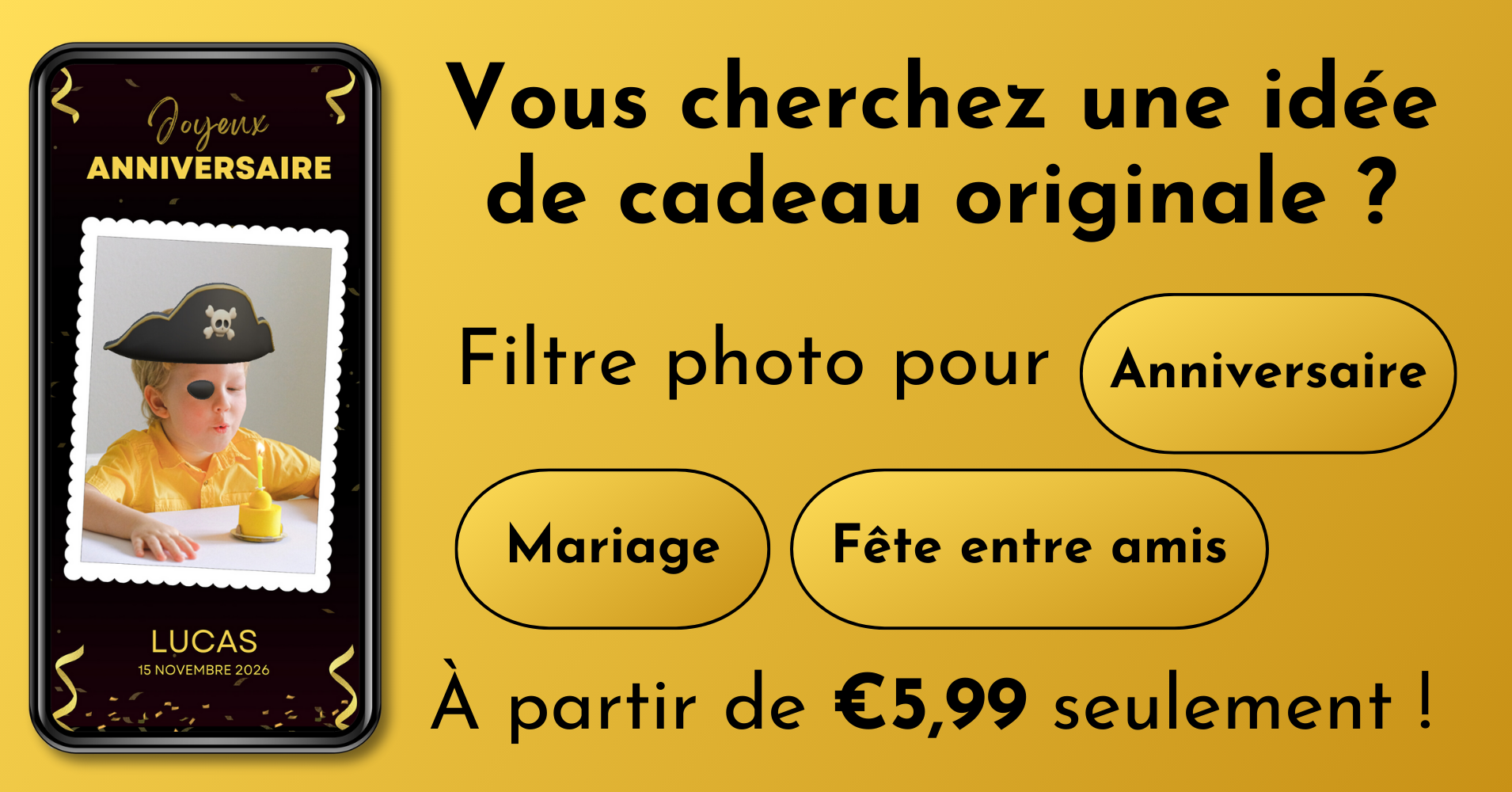Selfilt - AR Startup (2023)
Selfilt’s idea was to sell Augmented Reality (AR) mobile face filters that could be fully customizable and gifted as digital products for events such as birthdays or weddings. As such, I designed it primarily as a B2C product, prioritizing ease of use through a traditional buying environment (an online Shopify store), and straightforward use with single click link and QR code.
My line of reasoning was that the advent of digital photography made it hard to contextualize memorable events, as our digital galleries become flooded with countless photos. My product would make them memorable both during and after the shot, by adding a dated and customized overlay to the picture, and having 3D augmented face accessories that make selfies much more fun to take. This digital overlay and 3D accessories would be bundled as a Selfilt filter digital product and sold online to be gifted and shared during group events.
Features
- Shopify storefront to buy and customize filters. Choice of overlay, accessories, and number of users. Options lead to different prices.
- Automatically receive an email with a link, QR code and access code to the digital product after purchasing.
- Web app with camera access to display the face filter:
- Support for multiple people
- Text and theme customized responsive photo overlays
- Numerous with 3D accessories
- Easy switching between 3 types of accessories: hats/hair, glasses and mouth/beard.
Tech stack
I used Shopify for the store. I integrated custom javascript code to display information from my server. It was connected via a webhook to my Node.js server deployed on Heroku. There, I validated the requests, updated an SQL database, generated a QR code and connected to an email API in order to send an email to the customer with the link, QR code and 5 letter access code to access its face filter.
Then, for the face filter, I developed a web app with HTML/CSS/Javascript that would take a link or a 5 letter code, query my SQL database to fetch the face filter’s characteristics and display them on the DeepAR web app. I had developed my own face filter exports on the DeepAR proprietary app, and I could compose them to fit the user’s choice on the Shopify store.
Marketing & Pricing
Marketing was by far my biggest weakness for this project. Since my product idea was quite novel, I felt like people had a hard time to grasp what my project was about, unless they could try it. This made it hard to understand if there was an actual market and what people would be willing to pay for this product. Moreover, I wanted to market for both birthdays and weddings in the beginning, but these events have largely different audiences and needs. It sometimes felt like my product had tried to reach audiences that were to diverse, and that I had better specialized in one type of event.
I still ran some targeted Facebook ads and distributed flyers, although I did not get much feedback from them. I wish I had talked to more businesses to form partnerships, which would have helped to gain visibility on the project.

Closing remarks
Sadly, I can only speculate why a combination of things may have made my product unsuccessful: novel and hard to understand product, lack of marketing and partnerships, low/moderate need for the product, does not fit the french culture, overgeneralized solution, unpractical, less competitive than photobooths… But still, I have an intuition that this product could have found a market, maybe not in France or in this exact shape and form, but I would like to think that this could become something more in the future.
Finally, despite spending a large amount of my time on the project, I decided to pause it for an undetermined duration. But as always, I learned a lot, I got to meet great people throughout this project’s development, and in no way do I regret putting in the effort to try to build something nobody has (to my knowledge).
Written in November 2024